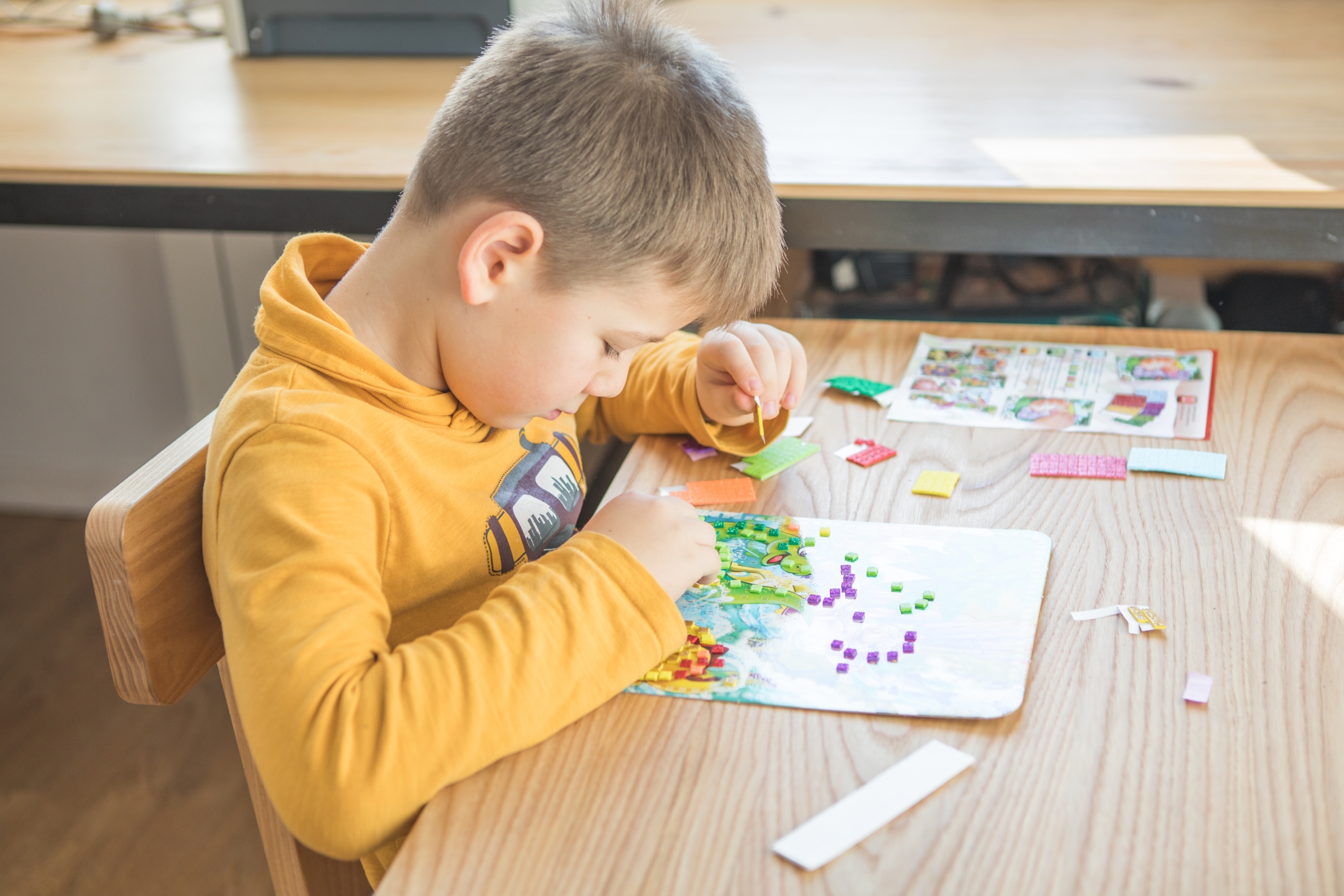There are many practical considerations when helping our children transition back to school – particularly after a long summer break or during a move between classes or year groups. Despite these concerns, however, it’s also worth considering the emotional impact such transitions can have upon the whole family. Here our Behaviour Outreach Support Service, which works to promote inclusion in schools, talks about some of the ways we can manage how our children feel about returning to school after the lockdown.
 Listen, identify emotions and find good solutions
Listen, identify emotions and find good solutions
Whatever your child’s communication style the advice is similar – listen first and rephrase what they said. This lets them know they have been heard and supports them to figure out their feelings. You can ask your children if they have any worries or concerns, ask them how they are feeling, and offer help if they feel they need it. Reassure your child that it’s normal to have mixed emotions. This helps to validate their emotions and helps you relate to them.
A good tip is to start discussions by talking about your day or how you are both feeling, as this opens up a discussion in a non-threatening way.
Be prepared
It reduces stresses if you are prepared for the change. Check/ask your children to check what equipment is needed for returning to school. It may also be a good idea to check uniform and shoes still fit as this removes another potential source of worry on the day. Shoe sizers can cheaply be purchased online if you are unsure of their size and can’t get to a shoe shop.
In the run-up to returning to school try to get routines back in place such as regular bedtimes and mealtimes. It helps to engage your children by encouraging them to set their own routines, so make sure you discuss what would work well for them.
Things to look forward to
We all enjoy rewards so perhaps encourage your children to engage by making a list of all of the things they are looking forward to when they return to school. This may be seeing friends or attending their favourite lessons. Encourage humour by using phrases such as ‘remember when….” or ‘what was the funniest thing you remember?” This will focus on the positive aspects of the school experience and help to reduce any worries your child may have.
“Encourage humour by using phrases such as “remember when….” or “what was the funniest thing you remember?”
Identify achievements
Discuss all the positive achievements (not just academic) your child has managed during their time away from school, no matter how small! Have they engaged with online learning? Are they now able to make a lunch or snack for themselves or their siblings? Maybe they just got up on time? A positive attitude regarding their progress is an important tool for ensuring they’re have the right mindset to thrive.
Aspirations
It may help children to either set the goals they’re working towards themselves. Depending on their age, you could discuss questions such as:
- What do they need to do to achieve?
Support children to realise potential and own their future by asking questions such as:
- What parts of school am I good at?
- What should I improve on?
- How can I feel better about returning to school?
You know your children and this may not work for all young people, but it might help to discuss your personal goals for the next month as this may trigger/enable the thought process for the child.
Plan a treat
Treats and rewards help to keep us all motivated, so you might want to consider planning a treat in advance. This could either be something you all share or something related to their independence. Remember, however, that it needn’t be expensive, lots of treats are free or cheap and can be easily planned – such as watching a film, home pampering, having/allowing a later night or even arranging for a favourite meal or takeaway.
 Look after you
Look after you
The demands on parents over the holidays can be numerous, and can have a huge impact on families in terms of finances and managing their work lives, so make sure you’re not just considering your children’s wellbeing. Make sure you take time for yourself. Transitioning back to school is a process, and it’s unlikely things will run smoothly from day one and this is ok. Treat yourself, talk to friends and discuss worries or concerns about your child’s schooling or behaviour. Think of what will support you and prevent you from worrying. You might want to take some quiet time to think or release endorphins by exercising. Even just going for a quick walk will help elevate your mood. You might want to consider doing some research into mindfulness and there are lots of handy tips online to support such as the NHS five steps to mental wellbeing.
It is important to remember that all children and teenagers are different – some don’t want to return to school and others do. Do what is best for you and your family and try not to put added pressure on yourself.
Here are some useful links to other support materials on this topic:
NHS – 5 steps to mental wellbeing
Young Minds
Mental Health Foundation’s tips for parents and caregivers – preparing your child to return to school
An NHS guide – It’s ok to worry about coronavirus
Find out more about our BOSS service and the support it provides to promote inclusion in schools or, if you feel overwhelmed with pressures related to your child’s return to school, you can contact our FamilyLine service for emotional support and guidance.

 Listen, identify emotions and find good solutions
Listen, identify emotions and find good solutions Look after you
Look after you






